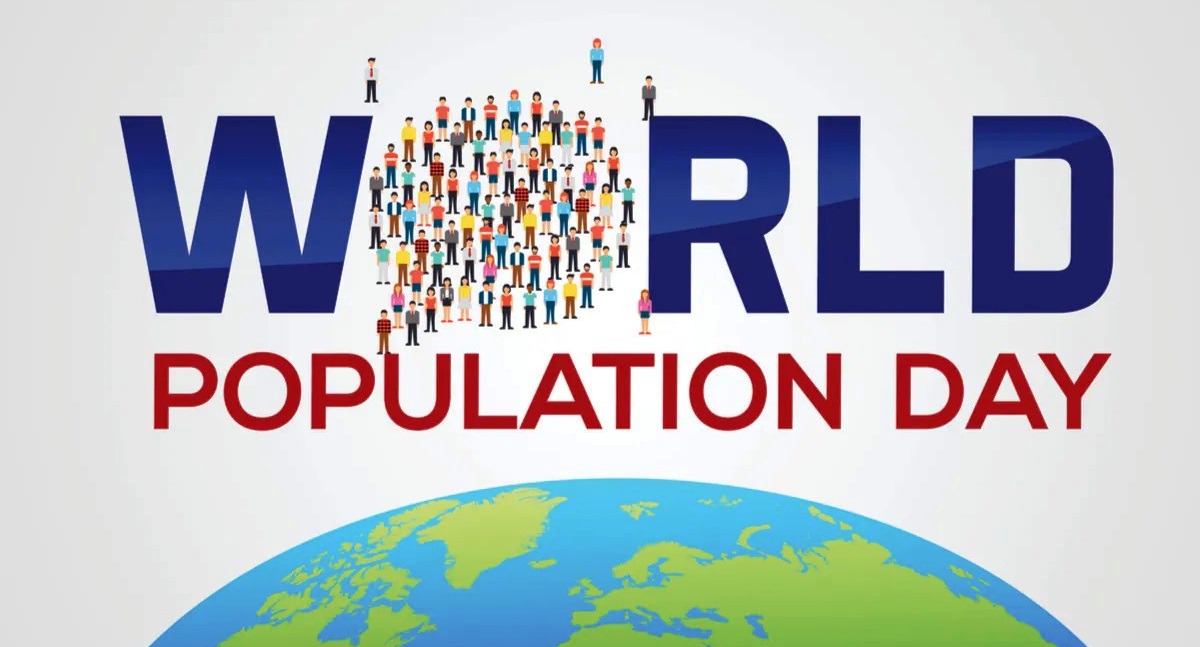11th July 2021 – Today is the World Population Day 2021.

The day is celebrated on the 11th of July every year since 1989 when it was established by the then Governing Council of the United Nations Development Programme. This day is important because it aims to increase people’s awareness on various population issues such as the importance of family planning, gender equality, poverty, maternal health and human rights. However one of the most overlooked abstracts on the population, is it’s effect on the environment.
George Wachiuri, Chairman of the Optiven Foundation says all must be done to ensure that our environment can sustain the growing population for a better future. Commenting on the Environment Pillar of the Foundation that oversees the GoGreen Initiative at Optiven, Wachiuri notes that, “ as much as little is being discussed on the effect of population on the environment, the world and people in particular, have consumed more resources in the last 50 years than the whole of humanity before us”.
The current growth in population which catapulted in the 20th century is a result of continuing improvements in nutrition, medicine and technology. With projected growth of 9.2 billion people, the challenges of population growth are more complex than they appear and this is despite the fact that scientists are yet to conclusively determine the human ‘carrying capacity’ of Earth.
Wachiuri who also serves as Chief Executive at Optiven Group says, “the bearing of population growth on the environment takes two major forms: The first is that there is an impact in how we as humans consume resources including real estate that we are involved in and basic amenities such as energy, water and fuel. The second bearing and which affects our environment tremendously is waste.
Since we launched GoGreen Initiative in 2020, we have learnt that waste later produces other by products which are as a result of consumption and affects our air and water. It is consumption then that introduces toxic materials and hazardous gases into our environment.” https://www.youtube.com/watch?v=4UbmMUxS3Xg
Speaking on the way forward, Wachiuri proposed that, “there is need to look beyond the observation of the day by planning ahead and visualizing what the world will look like post 2030. Let us be cognizant of what is happening among populations—their distribution (density, migration patterns and urbanisation), their composition (age, sex and income levels) and, most importantly, their consumption patterns—that are of equal, if not more importance, than just numbers.”
He called on players in sectors that affect the population existence such as real estate to consider changing their modus operandi and embrace care for our environment. Quoting the agenda for Optiven Homes, Wachiuri said that, “our way of planning projects and building homes should consider patterns that support environmental sustainability.
From the design, materials, location and even utility of the spaces, the responsibility starts with the real estate company and benefits the investors in the sector”. His sentiments come on the backdrop of a recognition to the GoGreen Initiative by Optiven, that was lauded in June 2021 by the global body Earth Day for its involvement in participating in World Earth Day, during which Optiven Real Estate participated in greening of their premier project at Amani Ridge | The Place of Peace in Kiambu County. https://www.optiven.co.ke/newsblogs/optiven-celebrates-earth-day-with-greening-in-kiambu/
As the world celebrates the growing population today, what are our options towards a better planet? GoGreen Initiative by Optiven suggests the following:-
Let’s Innovate
Two things, innovation and technology will extend the planet’s human carrying capacity, as well as improve the quality of life for each individual. This is by the advances in food production technologies such as agriculture, water purification and genetic engineering which will aid in feeding people
Switch your Fuel
By segregating fossil fuels in favour of renewable power sources such as wind and solar will go some way to reducing climate change. For example the capacity of wind power to fuel homes in Africa will ensure more people are energy sufficient and in a clean manner.
Policy Change
Use of demographic transition, will effectively find ways to slow or stop population growth resulting in fewer people fighting for resources or ‘slices’ of pie. Though controversial, it is a fact that birth rates naturally decline when the following interventions are put on the table:-
- Populations are given access to sexual and reproductive healthcare,
- Education for boys and girls beyond the primary level is encouraged and made available,
- Women are empowered to participate in social and political life.
Continuing to support programs and policies in these areas should see a corresponding drop in birth rates.
Poverty Reduction
As the incomes of individuals in developing countries increase, there is a corresponding decrease in birth rates. This is another incentive for richer countries to help their poorer neighbours reach their development potential. Investing in education is key as the foundation for our future. This is because education plays a key role in helping to reduce unsustainable birthrates.
Advocacy
Through this approach, people will be educated about their actions and consequences of those actions, leading to a change in behavior and in turn a better environment and planet. For example use only what you need because having more will not necessarily make you happier anyway. There is need to step back and re-examine what is important and actively find ways to reduce the amount of resources we consume.
At finally, at the end of the day let us remember that the simple lifestyle changes such as harvesting rain water, planting your own food organically, saying no to single-use plastics, recycling our waste and reviewing our mode and frequency of travel may seem trivial, but if millions around the world begin to do it as well, the difference will begin to add up. It is this steps that will then facilitate us all with a better planet and a bright future, just as we advocate at GoGreenNaOptiven. https://www.optivenfoundation.org/news-and-blogs/going-green-agenda/
Happy World Population Day 2021.





